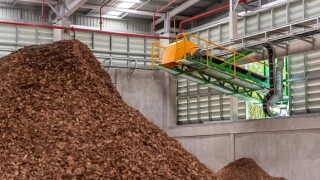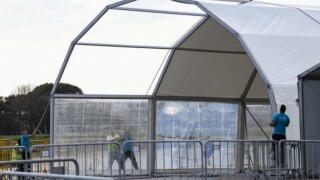Loans and High Yield
-
Tim Hoffmeister has taken up senior positions in an M&A advisory firm and a management consultancy in Germany.
-
Some of Europe’s largest banks have taken large chunks of syndicated loan market share in EMEA this year, as the pandemic has prompted some institutions to flex their muscles and others to retreat.
-
It was a busy first quarter at Commerzbank’s corporate clients division, as companies rushed to secure liquidity and access Germany’s support programmes. But that division and the group as a whole made a loss in the quarter, results released on Wednesday showed, as cost of risk rose and valuations of derivative positions fell.
-
Rubis Terminal made the first European high yield debut since the start of the coronavirus crisis, issuing a new €410m bond to fund a minority investment buyout by infrastructure specialist I Squared Capital. Business has boomed at the company, which operates bulk liquid storage, thanks to the collapsing oil price.
-
The coronavirus pandemic will test the complex relationship between bank loans and the fabled ancillary business supposed to make it all worthwhile. Some banks have provided heaps of extra cash for European clients to keep them alive and it has changed the shape of the loan market, with some banks ramping up market share. But will companies return the love when the time comes?
-
While the US high yield market has delivered a deluge of secured rescue bonds to bail out airlines, cruise lines, car rental firms, hotels and other "zero revenue" virus casualties, European high yield has stayed sedate, cautious, and stuck to the safest sectors. Can the European bond market rise to rescue financing?
-
Paper and pulp maker Sappi is raising a new €250m senior five year non-call two bond, looking to shore up its already ample corporate liquidity, following an existing agreement with its revolving credit facility (RCF) lenders to waive covenants until March next year. But despite the company’s actions, its outstanding bonds are quoted as low as 80, meaning it will likely have to pay up.
-
Indonesian palm oil producer Perkebunan Nusantara III (PTPN) is seeking consent from banks to delay payments on a dollar loan, given expectations of a hit to its business because of the Covid-19 pandemic. But bankers told GlobalCapital Asia this week that the state-owned company has enough cash to make the payments, with the syndicate team set to reject its deferral request. Pan Yue reports.
-
Synlab’s multi-part liability management exercise has ended up leaning more heavily on the bond market than on loans, with the new FRN leg boosted from €400m to €850m, more than compensating for limited take-up from lenders asked to switch into a longer dated loan. But it should be little surprise that the bond went better, as it paid investors an extra 75bp for a near-identical product.
-
The coronavirus pandemic, in terms of the financial markets has had its winners as well as its losers. The loan market, after years of decline as borrowers sought better terms in bond markets, has shown its worth in times of trouble by being able to offer liquidity lifelines to companies left in dire need of the stuff when other markets could not provide it.
-
Chinese battery maker Leoch International Technology has returned to the loan market for a $100m refinancing.
-
Chinese oil and gas company MIE Holdings Corp has missed interest payment on a dollar bond during the grace period, triggering cross-defaults on its loan facilities. The firm has been hit hard by tumbling oil prices this year, putting pressure on its liquidity.









